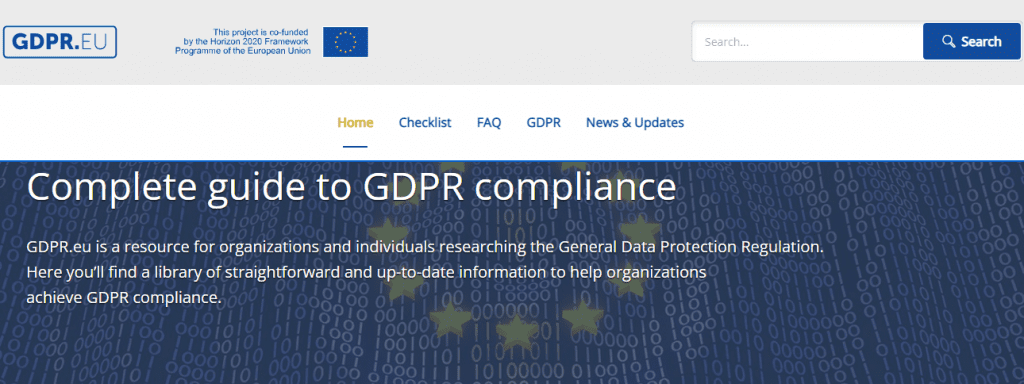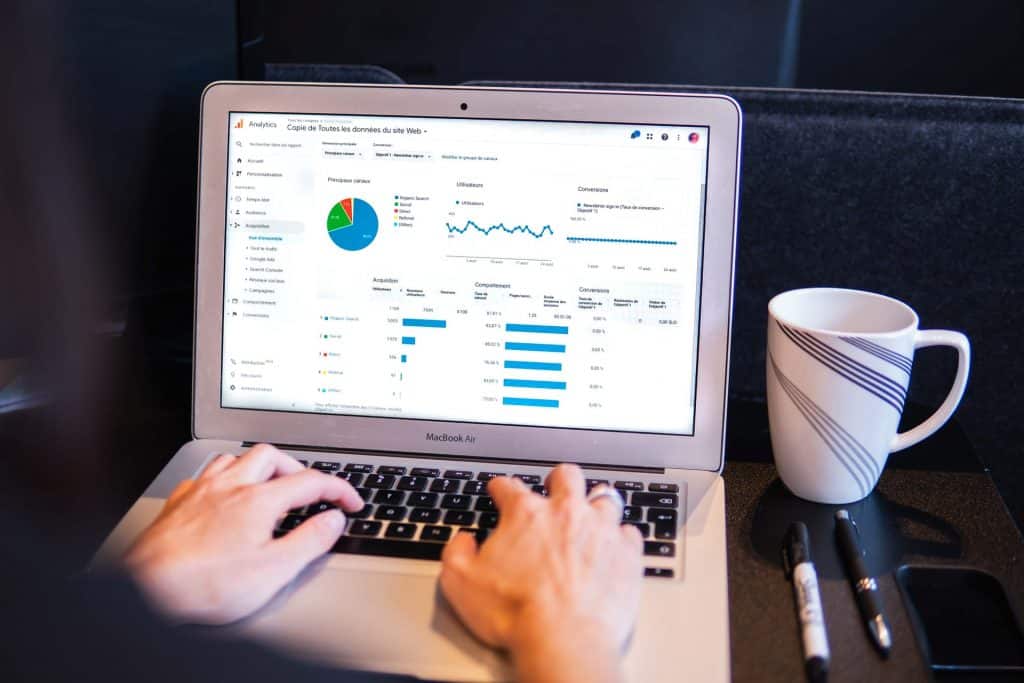In digital marketing, the only constant is change. Google Analytics used to be an exception to that trend, but Google's fall announcement of GA4 signifies a structural shift in website data collection.
GA4 is built on events, whereas Universal Analytics was based on sessions. Will this switch lead to more effective marketing strategies? And if so, how can you set up your GA4 to make the most of your marketing efforts?
What is Google Analytics 4?
Google Analytics 4, which used to be called “App + Web,” presents a new kind of property, offering different reports than those available in Universal Analytics properties. GA4 offers several advantages, including using it on websites, apps, or both elements together. On the contrary, Universal Analytics only supports websites.

GA4 is described as the next-generation approach to “privacy-first” tracking, x-channel measurement, and artificial intelligence-predictive data all at once. When you apply Google's advanced machine-learning techniques, GA4 can help you fill out data for your web traffic and user behavior, so you don't have to rely on having hits come from every single page.
Overall, GA4's primary goal is to transition the way people see data. The information focuses on users; in particular, you'll see their journeys from their first visits to their final conversions. This application is all about “events”; they're the primary way information is presented in the new Google Analytics platform.
Additionally, if you have gaps that you don't know how to fill in due to a lack of understanding of your customer base, GA4 can assist. Users can opt-out of cookies usage and data collection. Suppose your website—like so many others—is moving to a scenario where you use visitor consent to define your Analytics tracking. In that case, GA4 can help you navigate the new privacy protection laws, such as the GDPR and CCPA.

Also, suppose your company relies on traditional Universal Google Analytics. In that case, you could hit obstacles that result in inaccurate or missing data from cookie consent options required by these recent laws.
Do You Need Google Analytics 4?
Many digital marketing experts recommend adding a GA4 property to your existing Google Analytics account. Google Analytics 4 can run adjacently to Universal Analytics, which means your UA information remains intact and accessible. With GA4, you'll have access to the best of both worlds, and you'll be able to experiment as the new Analytics platform matures.
Who Should Use Google Analytics 4?
If you're trying to handle how your website is performing in customer conversions and acquisitions, you need to upgrade to GA4. This tool will enable you to understand how potential customers are finding your website, what your most profitable traffic sources are, and how well your unique marketing campaigns are performing (in terms of attracting new visitors to your website).
Does GA4 Help with Reporting?
When you're collecting data, the strategy you choose to use that information with is only as powerful as the data you can extract from your various platforms. GA4 will bolster your reporting capabilities because it pushes for protecting users' privacy. As we previously mentioned, it's becoming harder and harder to track user behavior as people meander across multiple channels using various devices.

With GA4, you'll have a forward-thinking tool at your fingertips. It's designed to enhance machine-learning techniques in ways that help fill in the data gaps. In turn, this creates a unified user journey for all data associated with each same persona.
As if that's not enough, the Google Analytics 4 reporting interface makes it super easy for you to identify key trends and irregularities in your information. Rather than dealing with a lengthy list of predefined reports that attempt to address every single use case, GA4 uses overview reports in summary cards. You can also dive in a little deeper by simply clicking on your scorecard.
How to Best Utilize GA4 Reports
When you initially log into GA4, you'll see a summary of your overall traffic. Here, you can track your conversions and related revenue of specific properties on your homepage. Use this space to quickly check your marketing strategy and compare the results to the projected numbers. When you view your homepage dashboard, you'll soon be able to see:
- Where new users are coming from
- Which of your campaigns are performing optimally
- Which pages and screens are getting more views than others

Realtime Report
Realtime Report is another default report that lives in the navigation to the left side. It will give you information on events within the past half hour. You can use this report to quickly:
- Make sure your tracking code is working;
- Look at Effects from any YouTube videos you've posted;
- Check out New Product Drop – it happens in real-time.
Realtime Report also includes “View User Snapshot,” which is located in the top-right space of the report. It lets you view an actual snapshot of an individual user. You can learn what device that person is using, where they're located, and what kind of real-time engagement they're having with your brand.
Life Cycle Reporting
Life Cycle Reporting is helpful because it gives you insight into how people are entering your conversion funnel. The tool also lets you examine consumer behavior once they've entered the funnel. This report enables you to see how you acquire, engage, monetize, and retain audience members.

Google Analytics 4 also gives you the option to see specific information, such as user demographics and the technology through which they're accessing your site, as well as events and conversions.
Using the Analysis Hub
One of the most effective changes to GA4 is the newly created Analysis Hub. Default reports give you access to your critical business metrics, but the GA4 Analysis Hub goes above and beyond what you'll see on the main dashboard. It provides insights into several advanced techniques and a template gallery that you won't find anywhere else.
Use the Analysis Hub to glean insights, such as:
- Exploration
- Funnel Analysis
- Path Analysis
- Segment Analysis
- Cohort Analysis
- User Lifetime
Google Analytics 4 is the Present
Analytics tools are among your most powerful marketing weapons. They help you gain insights into how people are behaving once they've arrived on your site and how you're driving traffic to your site in the first place. Better analytics insights mean better marketing decisions.
Google Analytics 4 is a must-needed upgrade for most marketers, offering more flexibility and the ability to foresee users' behaviors while upholding user privacy.




